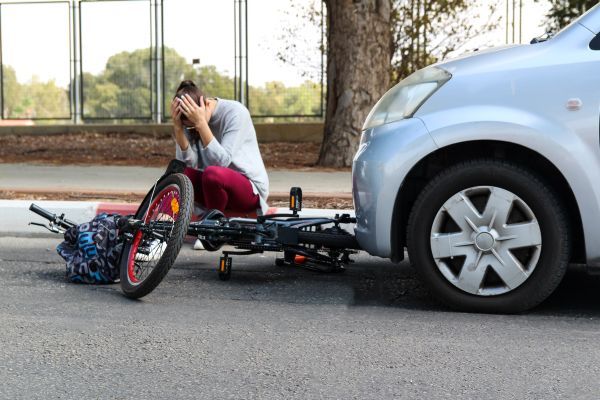Can Family Members Seek Compensation If a Loved One Is in a Fatal Accident
When someone you care about dies in a fatal accident, it doesn’t matter how strong you are or how well you handle stressful situations. It still throws the rest of your life into disarray. You find yourself trying to get through basic tasks while you’re in shock and mourning. You might be preoccupied with how it happened or who’s at fault. Was it purely an accident? Did your loved one make an error? Or was someone else negligent or breaking the law? If you believe someone is at fault for the accident and, subsequently, your loved one’s death, you might wonder whether compensation is something you should pursue or if it’s even an option.
Like most legal issues, every case is a little different, and if you think you have a case, it’s important to seek the expertise of an attorney early on to understand your options. If you aren’t sure, you might want to do a little research first. Below, we’ll go over the basics of a wrongful death claim, discuss who is eligible to file, and review the compensation and benefits that might be available to surviving loved ones.
Wrongful Death Claims
When a loved one passes away in a fatal accident, Oregon’s wrongful death laws give you a path to seek compensation when someone else’s negligence was involved. It recognizes the fact that the death didn’t just remove a person from your life, but it also created a ripple effect in ways that are both emotional and financial.
Claims get filed for all kinds of reasons. Some people seek financial stability because the deceased was supporting the household. Others might simply want the record to show what really happened. Some loved ones want acknowledgment that the accident changed their lives in a way that deserves to be handled seriously. The law is there to give you options.
A wrongful death claim is filed in civil court and is completely separate from anything happening on the criminal side. It holds the responsible party financially accountable, whether or not they’re facing other consequences.
These claims can come from many different situations, such as a severe car crash where another driver made a reckless choice, a dangerous property condition that wasn’t addressed, a knowingly defective product that wasn’t recalled, or an accident caused by a company that failed to keep people safe. If you believe that the death could have been avoided, you may have a case.
Who Has the Right to File?
One of the questions often asked after a fatal accident is who can legally bring a wrongful death claim. Oregon doesn’t allow each family member to file their own separate case. This helps prevent disputes and keeps the process from becoming chaotic. Instead, the law assigns the responsibility to the personal representative of the estate, often someone close to the family or someone the deceased named in a will. If there is no will, then the court appoints a representative.
This person files on behalf of everyone who qualifies as a beneficiary, including surviving spouses, children, parents, and sometimes other family members or friends, depending on the relationship and circumstances. The damages are then divided among the beneficiaries, according to what the court finds fair.
What Compensation May Cover
When you file a claim after a fatal accident, the compensation you pursue reflects different parts of the life your loved one had when living and the roles they had within your family. The law looks at measurable losses first, like medical care, funeral or burial costs, and the income they would have earned if their life had not been cut short.
A claim also considers what toll the death takes on you emotionally. When you lose someone who offered companionship, guidance, or emotional support, the absence is impossible to quantify, but the law still recognizes that impact. Losing a spouse does not feel the same as losing a parent, and losing a parent is different from losing an adult child. Those relationships shape your daily life, your routines, and your sense of stability.
Courts weigh several factors when deciding on what is fair compensation. They consider the circumstances of the accident itself, the person’s age, their health before the accident, their earning capacity, and the nature of their relationships with the beneficiaries.
Each case is built on its own details, and no two families’ needs are alike. Expert attorneys like Warren Allen LLP will help you determine and document the important factors for your particular claim.
Survivor Benefits
Survivor benefits become relevant when a loved one survives the initial fatal accident long enough to experience the impact of their injuries. In those circumstances, the law allows the estate to pursue the claims that the deceased would have been able to file if they had lived. These might be related to pain, suffering, medical treatment, and even lost wages during that period. This might seem like only a subtle distinction from wrongful death, but it’s an important one. A wrongful death action focuses on what the survivors lost, while a survivor claim focuses on what the deceased personally endured before passing away.
These benefits don’t replace or diminish a wrongful death claim; they complement it by addressing a different part of the picture. For example, if your loved one spent time in the hospital, suffered significantly, or required expensive medical care, survivor benefits make sure the harm your loved one suffered doesn’t go unnoticed in the legal process.
Seeking Legal Guidance
The legal responsibilities after a fatal accident are not something anyone can be ready for. You’re grieving while trying to keep your household functioning, and wrongful death cases involve vast amounts of paperwork, gathering evidence, continuous communications, probate involvement, and unfamiliar laws.
Having an experienced attorney on your side, like those at Warren Allen LLP, takes some of the biggest responsibilities off your plate. Instead of juggling everything yourself, your attorney will be keeping track of deadlines, requesting records, talking to insurance representatives, and organizing the evidence needed to support your claim. That leaves you with more time to focus on healing and taking care of the people who depend on you.









